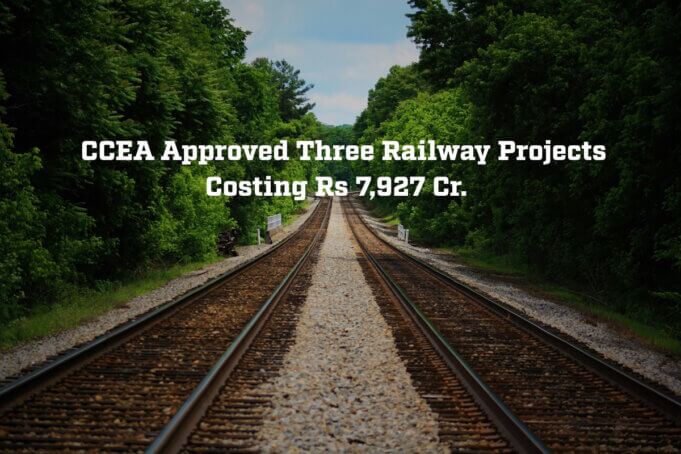The Cabinet Committee on Economic Affairs, led by Prime Minister Narendra Modi, approved three multi-tracking projects under the Ministry of Railways at an estimated cost of ₹7,927 crore on 25 November 2024. These initiatives aim to boost connectivity, facilitate smoother travel, lower logistics costs, reduce oil dependency, and cut carbon emissions. The projects, expected to be completed within four years, will create direct employment opportunities equivalent to one lakh human-days during the construction phase.
The approved projects include the following:
- Jalgaon–Manmad 4th Line (160 km)
- Bhusawal–Khandwa 3rd & 4th Lines (131 km)
- Prayagraj (Iradatganj)–Manikpur 3rd Line (84 km)
These developments will ease operational bottlenecks, reduce congestion, and upgrade infrastructure along one of the busiest sections connecting Mumbai and Prayagraj. By increasing Indian Railways’ network by approximately 639 km, the projects are set to improve logistical efficiency, accelerate economic growth, and provide multi-modal connectivity under the PM-Gati Shakti National Master Plan. The enhanced network will serve seven districts across Maharashtra, Madhya Pradesh, and Uttar Pradesh, benefiting over 38 lakh people and connecting 1,319 villages, including two Aspirational Districts, Khandwa and Chitrakoot.
The projects will also boost tourism and pilgrim connectivity along the Mumbai–Prayagraj–Varanasi corridor. Key destinations such as Nashik (Trimbakeshwar), Khandwa (Omkareshwar), Varanasi (Kashi Vishwanath), Prayagraj, Chitrakoot, Gaya, Shirdi, Khajuraho, and Ajanta & Ellora Caves will become more accessible. Other notable sites, including Devgiri Fort, Asirgarh Fort, Rewa Fort, Yawal Wildlife Sanctuary, and Keoti Falls, will also benefit from enhanced transportation infrastructure.
These routes are crucial for transporting agricultural products, fertilisers, coal, steel, cement, and containers. The increased capacity is projected to handle an additional freight volume of 51 million tonnes per annum (MTPA), contributing significantly to India’s economic and environmental goals. By reducing CO2 emissions by 271 crore kg (equivalent to planting 11 crore trees), the projects will support India’s climate initiatives while lowering the nation’s logistics costs.
Cover Photo: pexels.com











